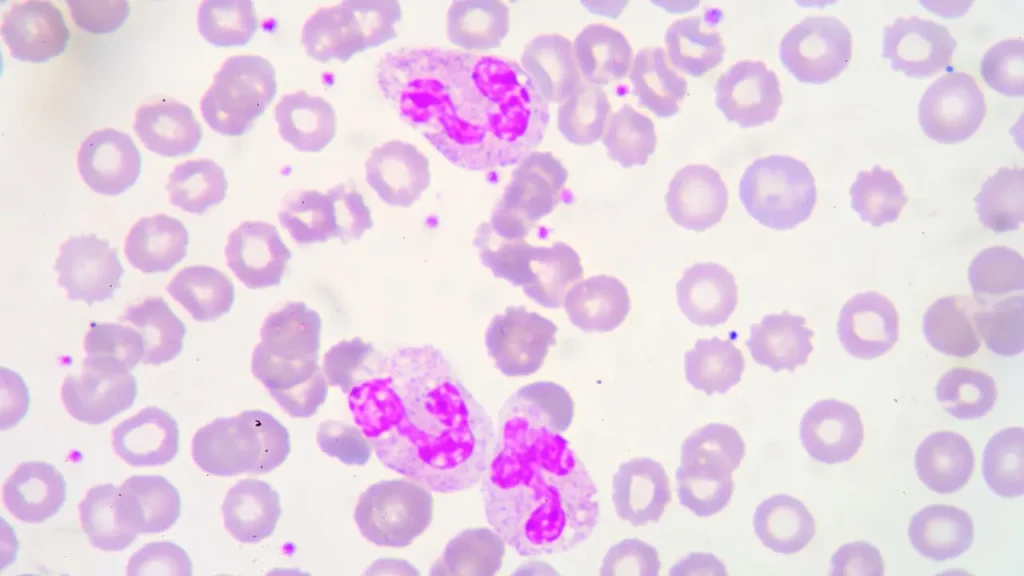A single-celled fungus known as brewer’s yeast, or Saccharomyces cerevisiae, is frequently used in the fermentation process of making beer. However, because to its rich profile of nutrients, including B vitamins, vital amino acids, minerals, and beta-glucans, it has attracted interest as a nutritional supplement. This page explores the properties of brewer’s yeast, as well as its advantages for health, recommended dosages, negative effects, possible drug interactions, and responsible use. It also delves into the physiological processes that underlie the chemistry of brewer’s yeast and the effects it has on the body and brain.
You May Also Like:
The Best Supplements for Brain Injury: 5 Top Brands Reviewed
Keep Your Brain Young With the 5 Most Powerful Nootropic Supplements
Brewer’s Yeast: Benefits, Dosage, Side Effects, Drug Interactions, and Other Important Information is an original (NootropicsPlanet) article.
The Nature of Brewer’s Yeast
Brewer’s yeast, also known by its scientific name Saccharomyces cerevisiae, is a single-celled microbe that is a member of the fungus kingdom. It is renowned for its fermentative properties, which are used in a variety of food preparation methods like brewing and bread-making. The distinctive texture and flavour of these food products are the consequence of the yeast’s conversion of carbohydrates into carbon dioxide and alcohol.
Brewer’s yeast is often grown on a medium that also contains grains, such as malted barley. Following fermentation, the yeast is taken out of the liquid, deactivated, and then turned into a fine powder, flakes, or tablet form that can be used as a dietary supplement.
Health Benefits
Brewer’s yeast contains B-complex vitamins, which are necessary cofactors for a number of enzymatic processes involved in cellular energy production and metabolism. These vitamins help turn proteins, lipids, and carbs into energy, boosting overall energy levels and metabolic effectiveness.
Brewer’s yeast has been known to improve immune function. Beta-glucans, which are included in brewer’s yeast, have been found to boost immunity by stimulating macrophages, neutrophils, and natural killer cells. These immune cells are essential for identifying and getting rid of pathogens, which strengthens the immune system as a whole.
This fungus also has blood sugar support qualities. By enhancing insulin sensitivity, the trace mineral chromium, which is included in brewer’s yeast, is crucial for maintaining healthy blood sugar levels. According to research, using chromium supplements can improve blood glucose control in people with type 2 diabetes.
Additionally, Brewer’s yeast contains B vitamins, vital amino acids, and trace minerals that support the strength and health of skin, hair, and nails. These nutrients are necessary for the production of the structural proteins collagen, keratin, and elastin, which keep these tissues’ strength, elasticity, and general look.
For those with a family history of heart troubles, Brewer’s yeast’s beta-glucans have been demonstrated to lower LDL cholesterol levels, lowering the risk of cardiovascular disease. Additionally, the trace mineral selenium works as an antioxidant to prevent oxidative damage to the cardiovascular system.

Chemistry of Brewer’s Yeast
The eukaryotic microbe brewer’s yeast (Saccharomyces cerevisiae) is made up of a special mix of organic materials and inorganic components. Proteins, carbohydrates, lipids, nucleic acids, vitamins, minerals, and other bioactive substances make up its chemical make-up.
Brewer’s yeast is a great source of proteins, which are generally made up of essential and non-essential amino acids. The creation of enzymes, hormones, and structural proteins is just one of the many physiological processes that these amino acids are essential for.
Beta-glucans, a class of polysaccharides with immunomodulatory and cholesterol-lowering characteristics, are the main source of carbohydrates in brewer’s yeast. Other carbohydrates include glycogen, a form of stored glucose, and chitin, a structural polymer found in yeast cell walls.
The majority of the lipids in brewer’s yeast are sterols, such ergosterol, which are essential for maintaining the structure and functionality of cell membranes.
Additionally, DNA and RNA, which are essential for encoding genetic information and controlling biological functions, are found in brewer’s yeast.
Brewer’s yeast is a great source of B-complex vitamins and trace minerals including chromium, selenium, and zinc. These nutrients are necessary for a number of physiological functions, including the creation of energy, immune system function, and antioxidant defence.
Physiological Mechanisms of Action
Brewer’s yeast benefits the body through a number of physiological pathways. First, Brewer’s yeast contains B-complex vitamins, which are crucial co-factors for a number of enzymes involved in cellular energy production and metabolism. Brewer’s yeast promotes overall metabolic efficiency and energy levels by making it easier for carbs, lipids, and proteins to be converted into energy.
By activating immune cells like macrophages, neutrophils, and natural killer cells, the beta-glucans in brewer’s yeast boost the immune system. These immune cells identify and get rid of invaders, boosting the body’s immune system as a whole.
In terms of blood sugar regulation, by enhancing insulin sensitivity, the trace mineral chromium, which is present in brewer’s yeast, appropriate blood sugar levels can be maintained. An increase in insulin sensitivity enables the body to use glucose more effectively, reducing abnormally high or low blood sugar levels.
Brewer’s yeast provides powerful antioxidative defense. It contains the trace element selenium, which is a crucial part of the antioxidant enzyme glutathione peroxidase. This enzyme reduces oxidative stress and shields cells from damage by neutralizing damaging free radicals.
It has also been demonstrated that the beta-glucans in Brewer’s yeast lower levels of low-density lipoprotein (LDL) cholesterol by interacting with bile acids in the digestive system. This binding encourages bile acid excretion, which lowers blood levels of LDL cholesterol and decreases dietary cholesterol absorption.

Optimal Dosage
Brewer’s yeast dosages are best based on a variety of variables, including age, weight, and medical conditions. For most individuals, it is generally accepted that a daily intake of 1 to 2 tablespoons of brewer’s yeast powder or flakes, or 2 to 6 tablets (each containing 250–500 mg), is safe and effective. However, it is advised to speak with a medical expert before starting a supplementation program, especially if you have underlying health issues or are using medication.
Side Effects
When used in moderation, brewer’s yeast is generally regarded as harmless. But some people could encounter negative consequences like gas, bloating, and moderate stomach pain. As the body becomes accustomed to the supplement, these symptoms usually go away over time.
Brewer’s yeast supplementation should also be avoided by people who have a known sensitivity to yeast or mold because they may experience allergic symptoms such itching, swelling, and breathing difficulties. Consuming live yeast may increase the risk of infections, thus people with impaired immune systems, such as those with HIV/AIDS or those undergoing chemotherapy, should use caution.

Potential Substance Interactions
There may be interactions between brewer’s yeast and the following substances and medications.
- Antifungal medications: Brewer’s yeast may lessen the effectiveness of antifungal medications used to treat fungal infections, such as fluconazole and ketoconazole.
- Monoamine oxidase inhibitors (MAOIs): Tyramine, an amino acid found in high concentrations in brewer’s yeast, can precipitate a hypertensive crisis when combined with MAOIs, a type of antidepressants.
- Diabetic drugs: Brewer’s yeast may interact with diabetic medications, causing abnormally low blood sugar levels (hypoglycemia), due to its ability to reduce blood sugar levels. Diabetes patients should keep a tight eye on their blood sugar levels and speak with a doctor before starting any supplements.
Nutritional Profile
Brewer’s yeast has a high nutritious profile that includes trace minerals, vital amino acids, and B-complex vitamins. It is a natural source of several vitamins, including thiamin (vitamin B1), riboflavin (vitamin B2), niacin (vitamin B3), pantothenic acid (vitamin B5), pyridoxine (vitamin B6), biotin (vitamin B7), folic acid (vitamin B9), and cobalamin (vitamin B12). B vitamins are essential for producing energy, preserving a healthy neurological system, and controlling several metabolic processes.
Brewer’s yeast is also a fantastic source of minerals including chromium, selenium, and zinc, which are essential for immunological function, antioxidant defence, and the metabolism of glucose, respectively. Beta-glucans, polysaccharides with immune-modulating and cholesterol-lowering effects, are also present.
Responsible Use
Consider the following recommendations to ensure the ethical use of brewer’s yeast:
First, speak with a medical expert before starting a supplement regimen, especially if you have existing health issues or are taking medication.
Second, Start with a smaller dosage and increase it gradually as necessary, keeping an eye out for any side effects or possible interactions.
It is extremely crucial to select a reliable and premium brand of brewer’s yeast, making sure the item has undergone the necessary processing and is free of impurities. Be aware of the possibility of allergic reactions and stop using if symptoms appear.

Brewer’s Yeast:
Conclusion
Brewer’s yeast has incredible immune boosting properties that are especially helpful around flu season, or for folks that tend to be around large groups of people year round. Adding Brewer’s yeast in it’s powder form to your meals or smoothies is a perfect way to reap the benefits of this fungus. Though it cannot provide you with foolproof immune protection, it can be useful for those who are more susceptible to contagious, airborne illness.
Those who are pre-diabetic may find Brewer’s yeast to be a helpful supplement as well, but those who are currently taking medicine for diabetes should be aware of medicinal interactions, only using the supplement under the advisement of their physicians.
References:
- Brewer’s yeast (Saccharomyces cerevisiae) as a potential functional food to produce folate-enriched products.Link: https://www.ncbi.nlm.nih.gov/pmc/articles/PMC5295732/
- Beta-glucans in the treatment of diabetes and associated cardiovascular risks. Link: https://www.ncbi.nlm.nih.gov/pmc/articles/PMC2673451/
- Brewer’s Yeast: Composition and Health Aspects. Link: https://www.sciencedirect.com/science/article/pii/B9780123849472006942
Important Note: The information contained in this article is for general informational purposes only, and should not be construed as health or medical advice, nor is it intended to diagnose, prevent, treat, or cure any disease or health condition. Before embarking on any diet, fitness regimen, or program of nutritional supplementation, it is advisable to consult your healthcare professional in order to determine its safety and probable efficacy in terms of your individual state of health.
Regarding Nutritional Supplements Or Other Non-Prescription Health Products: If any nutritional supplements or other non-prescription health products are mentioned in the foregoing article, any claims or statements made about them have not been evaluated by the U.S. Food and Drug Administration, and such nutritional supplements or other health products are not intended to diagnose, treat, cure, or prevent any disease.


